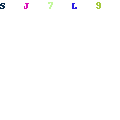Last week, on NPR's Monkey See blog, Linda Holmes began a discussion about the value of watching films out of context; that is, without the social and emotional coding that goes along with knowing something about the director, about the actors, about the production or genre or story.
This is, as she rightly points out, a very rare circumstance to find yourself in these days, in this country, where what is mainstream and domestic is almost always familiar, and what is indie or foreign is specially curated and marketed.
It's good now and then, though, to see something where, for you, there's absolutely no coding in it at all. Obviously, the marketing of a movie often sends unmistakable signals about where it's going and who the good and bad guys are before you ever get there. A story of a good and a bad brother, for instance, will tell you who's who in the commercials. Even if you don't get it from the commercials, there's a decent chance you'll get it from the casting. You'll get it from the way the two are shot from the opening sequence forward. You'll get it from the score.
When you don't know anything – what tradition the film is in, what its genre is, how it would be marketed, or who the target audience is – not only do you see that film differently, but you see other films differently, too. The lack of signals is palpable and initially unsettling because the experience is so rare, but like any negative space, it draws a kind of attention to itself.
However, to find a book that lacks coding,
for you, is not nearly so difficult—at least for the general public. Going to the library, where shelves are loaded not according to inventory and best-seller lists and sales goals, with recent titles rubbing covers with those years, decades, more old, offers the average reader the opportunity to pick up books almost in a vacuum. It looks good, check it out; it doesn't, put it back.
 |
| Good for a cover, isn't it? |
As a writer, though—and as a member of the thrumming online book community—this becomes much more difficult. I think the last book I picked up just because it looked interesting, even though I hadn't heard a thing about it, was Mike Wilks'
MIRRORSCAPE, and that was over a year ago.
Since, my entire TBR list has consisted of titles I've read up on on Goodreads, or on blogs, or heard about from other writer friends.
These are titles I need to read to stay current in my category or genre, or to stay current with cultural literacy (though, please, no Franzen for this girl). I have three library memberships, one for digital titles (thanks, Oregon, for still letting me play), one for paper books (thanks, Dad, for letting me cling to your account), and one to keep me tethered to home (thanks, Wyoming, for being the best library system ever), and all of them have hold lists that I couldn't manage to finish by Christmas—without taking into account books I buy.
 |
| Why wouldn't I pick this up? |
So context, for me, has become everything. I found a book in Fort Collins'
Old Firehouse Books a couple weeks back—Scarlett Thomas'
OUR TRAGIC UNIVERSE—that looked like just the kind of thing you'd want on your shelf, and it was only $8, but I couldn't bring myself to buy it because I didn't know anything about it. Well, that, and I'm an unemployed recent graduate student with loans.
But that has haunted me, that decision. I am independent-minded! I am my own person! I am…well, under-funded and wary of spending money almost anywhere, but. I buy books! Why in the
world couldn't I bear to buy this book—with its black-edged pages, its shiny, metallic cover, its odd, long proportions—out of context?
I should know well enough to embrace that negative space, that lack of coding, and find value in it. I SHOULD KNOW BETTER.
So that is my middle of the year, forget ceremony and pomp and champagne, real and true resolution: to get back to reading out of context. To pull books from the shelf I know nothing about, authors I know nothing about.
And thanks for all the fish, internet.
 Too punny? Let's pretend it isn't.
Too punny? Let's pretend it isn't.

